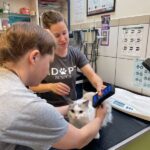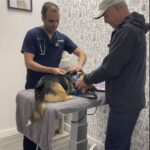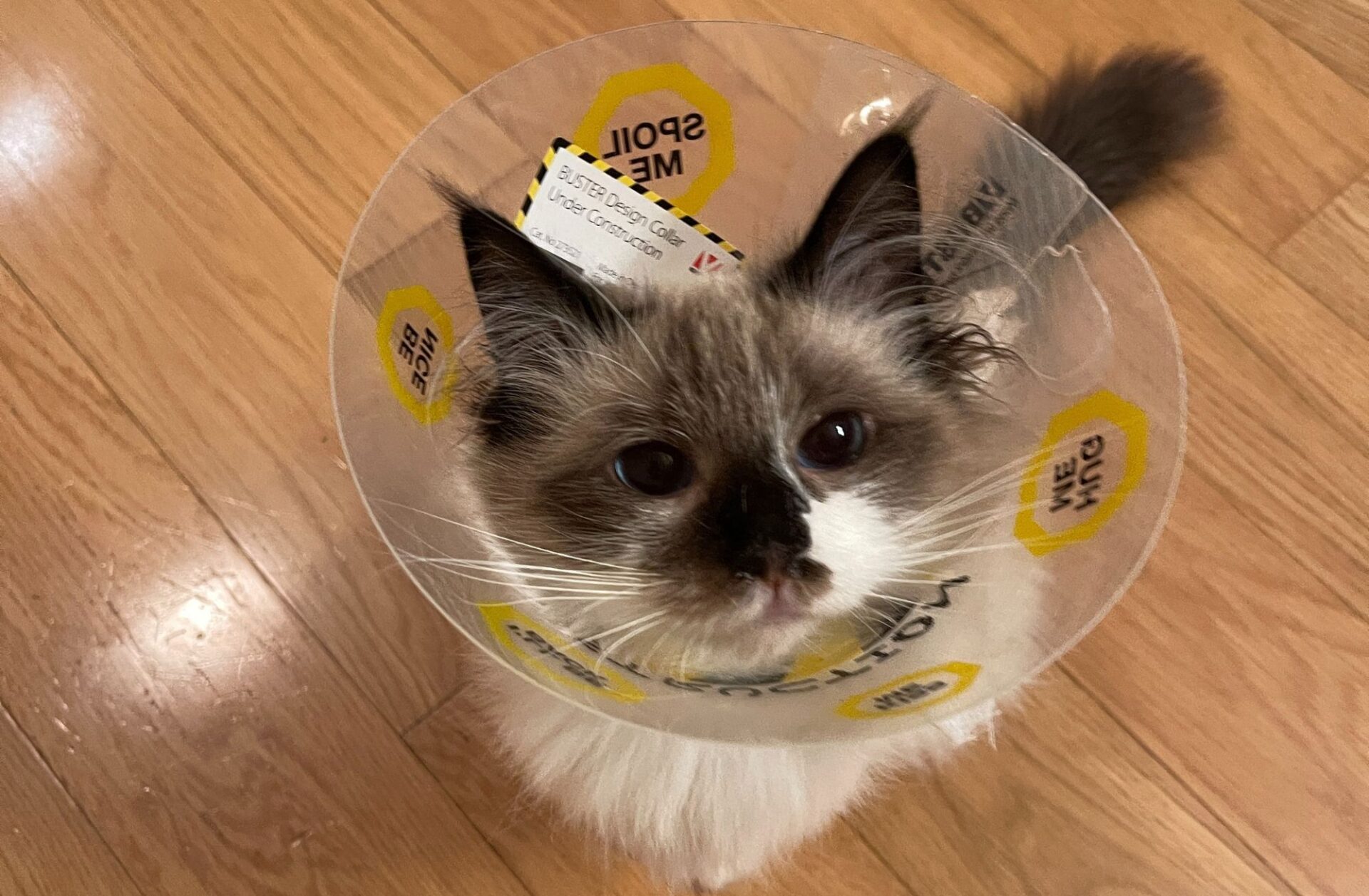Before getting your pet microchipped, you need to ask the right questions. Not all microchips or registries are created equal, and choosing the wrong one can cost you more money, compromise privacy, and put your pet at risk. This blog covers the critical questions to ask your vet before microchipping, ensuring your pet is protected and your information is secure.
Questions to Ask Your Vet Before Microchipping
Microchipping is often promoted as a simple safety measure, but many first-time pet owners in British Columbia don’t realize the hidden risks. A poor choice can lead to stress for your pet, costly fees, and privacy violations.
Coming to this blog, we assume you already know microchipping is important and costs about $60–$125 in BC. If not, read our guide on microchipping your dog or cat for details. With that covered, here are the key questions to ask your vet before microchipping to keep your pet safe.
1. Is the Microchip ISO-Certified?
ISO-certified microchips follow international standards and can be read by universal scanners worldwide. Without ISO compliance, your pet may be untraceable during travel or emergencies. Always confirm with your vet that the chip is ISO 11784/11785 compliant. This simple question can prevent major issues if your pet ever goes missing abroad.
✅ BC Pet Registry microchips are ISO 11784/11785 compliant.

2. What Will My Pet’s Microchip Number Look Like?

Some microchip numbers include letters, symbols, random spaces, or brand codes, creating a tracing nightmare. If the entry in the registry is even slightly off, your pet could spend days in a stressful, unfamiliar shelter environment while staff try multiple variations. Ask your vet to show you the exact number format. If your vet doesn’t carry a microchip with a straightforward numeric code, ask them to use one from the BC Pet Registry.

3. Which Registry Will My Pet Be Entered Into?
It depends on what microchip brand your vet chose to use. There are different companies selling different brands of microchips and they each have their own respective database (registries) to hold the registered information.
However, not all registries are honest or transparent. Some will:
💥 Charge for updates or transfers
💥 Sell your information to third parties
💥 Use outdated systems or expose personal information online
💥 Disregard privacy, putting your personal information at risk.
💥 Many registries do not provide login capability, forcing pet parents to rely solely on staff to ensure information accuracy. Mistakes happen—and your pet’s safety is jeopardized if data is incorrect.
✅ By contrast, the BC Pet Registry microchips include lifetime registration at no additional cost to the client. Owners can make unlimited updates and transfer ownership without any extra fees. Unlike other microchip brands that attempt to upsell clients on so-called “premium registrations,” BC Pet Registry offers full service from the start — with no hidden charges.
Be cautious about entering your information into so-called “free” pet registries. These services often come at a hidden cost — your personal data may be sold or misused, and you could be exposed to scams. Always ask your veterinarian which registry they use before microchipping your pet. While several registries operate in Canada, many are based in the U.S. In contrast, we are a proudly Canadian-owned and operated organization.
4. How Easy Is It to Update My Information?
Your contact information changes over time. If a registry makes updates complicated or charges fees, you’re paying for your pet’s safety. Choose a registry that allows instant, free updates to prevent delays in reuniting with your pet. A registry should protect pets, not profit from your need to maintain accurate information.
✅ BC Pet Registry offers full login access, real-time updates, and secure privacy—prioritizing animal welfare and supporting pets and guardians in the community over profit.
5. Is the Pet Registry Database Connected With International Lookup Tools?
In emergencies, every second counts. The AAHA Universal Microchip Lookup Tool is widely used across North America. Confirm that your pet’s registry is connected with this system. Without compatibility, your pet could remain longer in a stressful environment, and delays could cost precious time during reunification.
✅ BC Pet Registry partners with AAHA, so your pet is traceable internationally, giving you peace of mind whether at home or traveling.

6. Can I ask my vet to use your microchips?
Absolutely! In fact, many veterinary clinics aren’t aware that the BC Pet Registry sells microchips. Some clinics choose microchip suppliers based solely on cost, without realizing that this can lead to additional expenses and risks for pet guardians. Some even charge for simple changes like updating your pet’s color!
You’ve already paid $60 to $125 to have your pet microchipped — why should you have to pay more just to maintain your pet’s information?
Many veterinarians simply aren’t aware of this issue, which can leave their clients frustrated or dissatisfied.
BC Pet Registry microchips are competitively priced and backed by multiple benefits for pets and owners:






Consider asking your veterinarian why they choose to support — or not support — a registry that provides this standard of accountability and protection.
Why These Questions Matter
Pet guardians often assume all microchips are the same—but they are not. Confusing chip numbers, poor registry practices, and hidden fees can put your pet in danger, compromise privacy, and cost you money. Asking your vets these questions before microchipping ensures your pet’s safety, protects your wallet, and gives you control over your pet’s identity.
Next time you visit your vet, ask: “What brand of microchips are you using for my pet and if there’s any hidden charge?”. Ensure the chip is ISO-certified, easy to trace, and backed by a transparent, trustworthy registry like the BC Pet Registry. Protect your pet, your wallet, and your privacy—don’t accept anything less.
FAQs
1. Why does ISO certification matter for microchips?
ISO standards ensure your pet’s microchip can be read by universal scanners worldwide, reducing risk during travel or emergencies.
2. How do I know which registry my pet is in?
Ask your vet directly. Reliable registries provide login access so you can check and update your information at any time.
3. Can I update my pet’s microchip information myself?
Yes, but only with transparent registries like BC Pet Registry. Some registries require staff intervention or charge fees.
4. Can I request BC Pet Registry microchips at my clinic?
Yes. Ask your vet directly. Many clinics are not aware that BC Pet Registry offers secure, affordable microchips with lifetime registration. If your vet uses microchips from the BC Pet Registry, they have done the homework for you and you should be proud of your vet!
5. I cannot afford to microchip my pets. What should I do?
Check for free or low-cost clinics in your community. The BC Pet Registry has donated thousands of microchips to local communities, so there might be one near you.

















